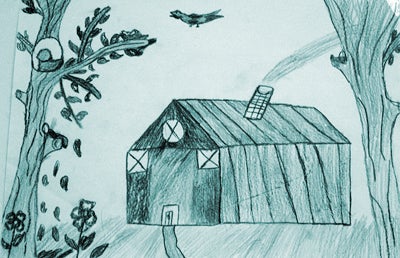A last resort? - Summary Guide: Temporary Protection Visas

A last resort?
National Inquiry into Children in Immigration Detention

Following a successful application for asylum, children
- either individually or as part of their family group - are generally
released from detention into the community on a three-year temporary protection
visa (TPV).
Since 2001, the conditions attached to the TPV mean that
children and their families:
- are not eligible for permanent residence in Australia, unless
the Minister decides otherwise
- are unable to bring any family to join them in Australia
for the period of their TPV, unless the Minister decides otherwise
- lose their visa if they travel outside Australia, as TPVs
are single-entry visas.
After three years the TPV expires. At this time the child
is required to apply again to stay in Australia on the basis that they
are still a refugee and that it would not be safe for them to return to
their country of origin.
Evidence presented to the Inquiry highlighted two very significant
barriers that children released from detention on TPVs face as they try
to integrate into the Australian community.
The first is that the temporary status of their residence
creates a deep uncertainty and anxiety about their future. This can exacerbate
existing mental health problems from their time in detention and their
past history of persecution. It also affects their capacity to fully participate
in the educational opportunities offered in Australia.
It is like a cancer. It is like
a brain tumour or something – you know that you are going
to die after three years. Even if you have a brain tumour, you know
that you are going to die in that certain time … so you live
happily. With this, you just die every day. You don’t know
what’s going to happen.
Teenage boy, Perth focus group

Drawing by a child detainee in Port Hedland
The second concern is that the absence of the right
to family reunion for the duration of the visa, combined with the effective
ban on overseas travel, means that some children may be separated from
their parents or family for a long, potentially indefinite, period of
time. Again, this can undermine a child's mental health and well-being,
especially for unaccompanied children who may want to try to see their
family.
Evidence to the Inquiry showed that unaccompanied refugee
children released from detention were generally well-cared for by State
agencies and that health, education and social services attached to temporary
visas satisfied the requirements of the Convention on the Rights of
the Child.
However, limited settlement services, including initial
housing assistance; stringent reporting requirements in order to receive
the Special Benefit; limited employment assistance programs; and limited
English language tuition for adults all placed significant strain on children
and families trying to integrate into the Australian community.
Inquiry finding
Australia’s laws breach
the Convention on the Rights of the Child by failing to ensure that
children released from immigration detention on TPVs can enjoy their
right to mental health, development, recovery from past trauma and
family unity.
